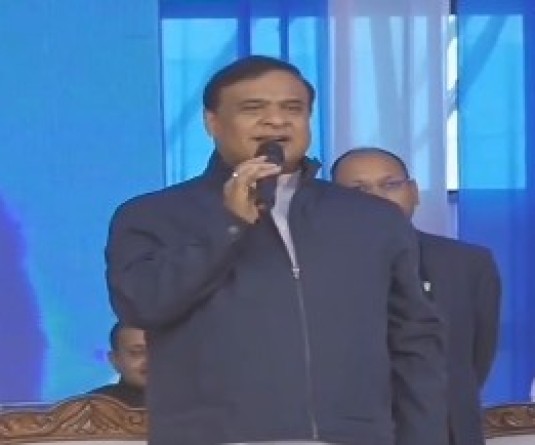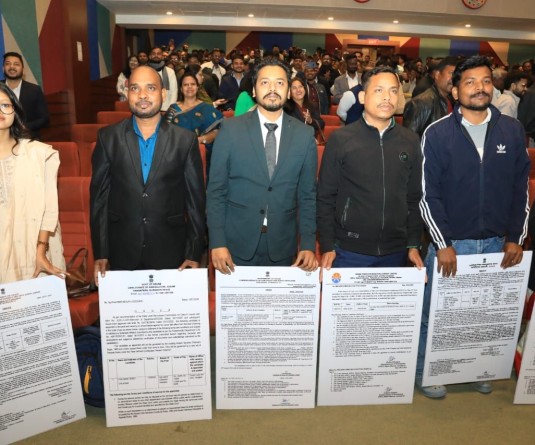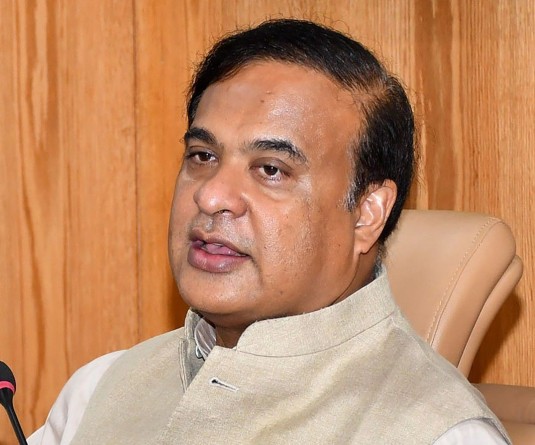
Dimapur, April 14 (MExN): The Election department has detailed the Model Code of Conduct which political candidates to the 26-Aonglenden assembly constituency are required to observe strictly. Chief Electoral Officer, J. Alam issued an official notice explaining the rules and procedures.
For the party in power, ministers are not to combine their official visits with electioneering work and shall not make use of official machinery or personnel during electioneering work. Government transport including official aircrafts, vehicles, machinery and personnel are not to be used for ‘furtherance’ of the interest of the ruling party. Public places such as “maidans” for holding election meetings or use of helipads for air flights in connection with elections shall not be monopolized “by itself,” the notice said. Other parties and candidates shall be allowed to use such places and facilities on the same terms and conditions on which the party in power uses them. Rest houses, “dak bungalows” and any other government accommodations are not to be monopolized by either the party in power or its candidates; the accommodations shall be allowed use by other parties and candidates “in fair manner”. No party of candidate is allowed to use such accommodations including its premises as ‘campaign office’ or for holding public meetings for the purpose of election.
Likewise, floating advertisements at the cost of the public exchequer in the newspapers or media or misuse of official mass media during the election period for ‘partisan coverage of political news or publicity regarding “achievements” is to be avoided, the election department said. If any advertisement has been released for broadcast PR w publication, it must be ensure that the advertisements are stopped immediately, the department said. Ministers and other authorities are cautioned against announcing any financial grants in any form or make promises of any; except for civil servants laying foundation stones for projects or schemes of any kind are prohibited; making promises of constructing roads, provisions of facilities etc or making ad-hoc appointments in the government of public undertakings etc are prohibited.
Transfer & Posting
The election commission has directed that there shall be total ban on transfer of all officers connected with the election. These include, but not restricted to, chief electoral officer and additional/joint/deputy chief electoral officer, divisional commissioner, district election officers, returning officers, assistant returning officers and other revenue officers connected with the conduct of elections. Likewise the purview of the ban include officers of the police department connected with he management of elections such as Range IGs and DIGs, senior superintendents of police and superintendents of police, sub-divisional police officers such as deputy superintendents of police and other police officers who are deputed to the commission under section 28A of the representation of the people Act 1951.
Transfer orders issued in respect of the stated categories of officers ‘prior to the date of announcement’ but not implemented till date, should not be given effect without obtaining specific permission from the commission in this regard, the code stated. The commission stated that the ban is effective until the elections are complete. The commission has directed the state government to refrain from affecting transfer of senior officers who have a role in the management of the elections in the state. In cases where transfer of an officer is necessary because of administrative exigencies, the state government may approach the commission for prior clearance, the code stated.
Funds
No fresh funds are to be release under the Member of Parliament Local Area Development Fund including Rajya Sabha members in any part of the country where election is in process. Similarly, no funds under the MLA or MLC’s Local Area Development Fund shall be released until the election process is completed. No work shall start in respect of work orders issued before this code of conduct was issued “but the work has actually not started in the field.” The works are to commence only after completion of the elections process. Works that have already commence, however, may continue. In addition, there is ‘no bar’ on the release of payments for completed works “subjected to the full satisfaction of the concerned officials,” the commission said.
For the party in power, ministers are not to combine their official visits with electioneering work and shall not make use of official machinery or personnel during electioneering work. Government transport including official aircrafts, vehicles, machinery and personnel are not to be used for ‘furtherance’ of the interest of the ruling party. Public places such as “maidans” for holding election meetings or use of helipads for air flights in connection with elections shall not be monopolized “by itself,” the notice said. Other parties and candidates shall be allowed to use such places and facilities on the same terms and conditions on which the party in power uses them. Rest houses, “dak bungalows” and any other government accommodations are not to be monopolized by either the party in power or its candidates; the accommodations shall be allowed use by other parties and candidates “in fair manner”. No party of candidate is allowed to use such accommodations including its premises as ‘campaign office’ or for holding public meetings for the purpose of election.
Likewise, floating advertisements at the cost of the public exchequer in the newspapers or media or misuse of official mass media during the election period for ‘partisan coverage of political news or publicity regarding “achievements” is to be avoided, the election department said. If any advertisement has been released for broadcast PR w publication, it must be ensure that the advertisements are stopped immediately, the department said. Ministers and other authorities are cautioned against announcing any financial grants in any form or make promises of any; except for civil servants laying foundation stones for projects or schemes of any kind are prohibited; making promises of constructing roads, provisions of facilities etc or making ad-hoc appointments in the government of public undertakings etc are prohibited.
Transfer & Posting
The election commission has directed that there shall be total ban on transfer of all officers connected with the election. These include, but not restricted to, chief electoral officer and additional/joint/deputy chief electoral officer, divisional commissioner, district election officers, returning officers, assistant returning officers and other revenue officers connected with the conduct of elections. Likewise the purview of the ban include officers of the police department connected with he management of elections such as Range IGs and DIGs, senior superintendents of police and superintendents of police, sub-divisional police officers such as deputy superintendents of police and other police officers who are deputed to the commission under section 28A of the representation of the people Act 1951.
Transfer orders issued in respect of the stated categories of officers ‘prior to the date of announcement’ but not implemented till date, should not be given effect without obtaining specific permission from the commission in this regard, the code stated. The commission stated that the ban is effective until the elections are complete. The commission has directed the state government to refrain from affecting transfer of senior officers who have a role in the management of the elections in the state. In cases where transfer of an officer is necessary because of administrative exigencies, the state government may approach the commission for prior clearance, the code stated.
Funds
No fresh funds are to be release under the Member of Parliament Local Area Development Fund including Rajya Sabha members in any part of the country where election is in process. Similarly, no funds under the MLA or MLC’s Local Area Development Fund shall be released until the election process is completed. No work shall start in respect of work orders issued before this code of conduct was issued “but the work has actually not started in the field.” The works are to commence only after completion of the elections process. Works that have already commence, however, may continue. In addition, there is ‘no bar’ on the release of payments for completed works “subjected to the full satisfaction of the concerned officials,” the commission said.



.jpg)


